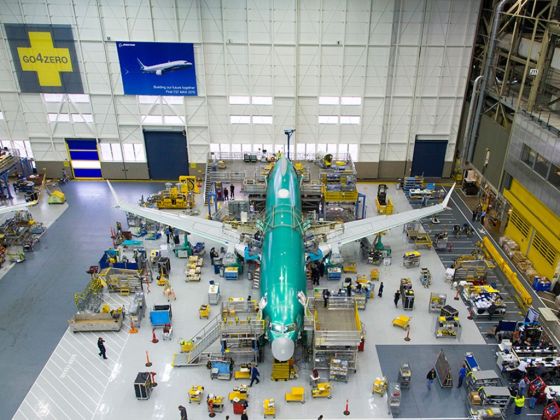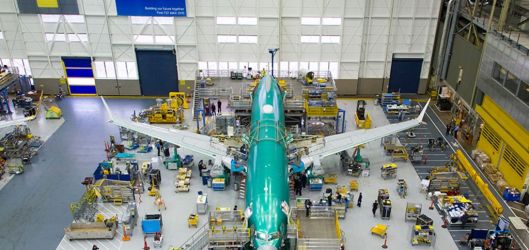
In its latest financial report, Boeing revealed its financial results have continued to be significantly impacted by Covid-19 and the grounding of its 737 MAX amid safety concerns at the end of last year.
The halting of production sparked unease among the estimated 680 suppliers which form the 737 Max supply chain, largely based in the US, as they prepared for the effects.
The manufacturing giant posted second quarter revenues of $11.8 billion, down 25% on the same period in 2019, and a dip of $5,101 billion from the first quarter of 2020.
In the second quarter, Boeing restarted production operations across key sites following temporary pauses to protect its workforce and introduce new health and safety procedures. The company also resumed early stages of production on the 737 programme in June.
"The diversity of our balanced portfolio and our government services, defense and space programmes provide some critical stability for us in the near-term as we take tough but necessary steps to adapt for new market realities," said Dave Calhoun, Boeing President and CEO. "We are taking the right action to ensure we're well-positioned for the future by strengthening our culture, improving transparency, rebuilding trust and transforming our business to become a better, more sustainable Boeing. Air travel has always proven to be resilient - so has Boeing."
Boeing delivered 20 commercial airplanes during Q2, compared to 90 in same period in 2019, taking the total commercial planes delivered in the first half of 2020 to 70, down 71% on the same period in 2019 (239). The aviation manufacturer's commercial airplanes Q2 revenue and operating margin decreased reflecting the lower delivery volume, partially offset by a lower 737 MAX customer consideration charge, but negatively impacted by $712 million in abnormal production costs. The segment is was currently sitting on a backlog of over 4,500 airplanes valued at $326 billion.
In a public letter to Boeing employees, Calhoun revealed in order to mitigate the impacts of the Covid pandemic the company would need to further lower its commercial airplane production rates, and will phase out production of its 747 in 2022 completely.
"While our 767 and 747 rates remain unchanged, in light of the current market dynamics and outlook, we’ll complete production of the iconic 747 in 2022," he wrote. "Our customer commitment does not end at delivery, and we’ll continue to support 747 operations and sustainment well into the future."
After previously announcing a net 10% workforce reduction earlier this year through a combination of voluntary layoffs, attrition and involuntary layoffs, Calhoun confirmed the manufacturer would have to 'further assess' the size of Boeing's workforces, meaning more job losses are likely to be on the horizon.
Calhoun predicted it will take around three years for the aviation industry to return to 2019 passenger levels, saying the pandemic's impact on the sector 'continues to be severe'.



